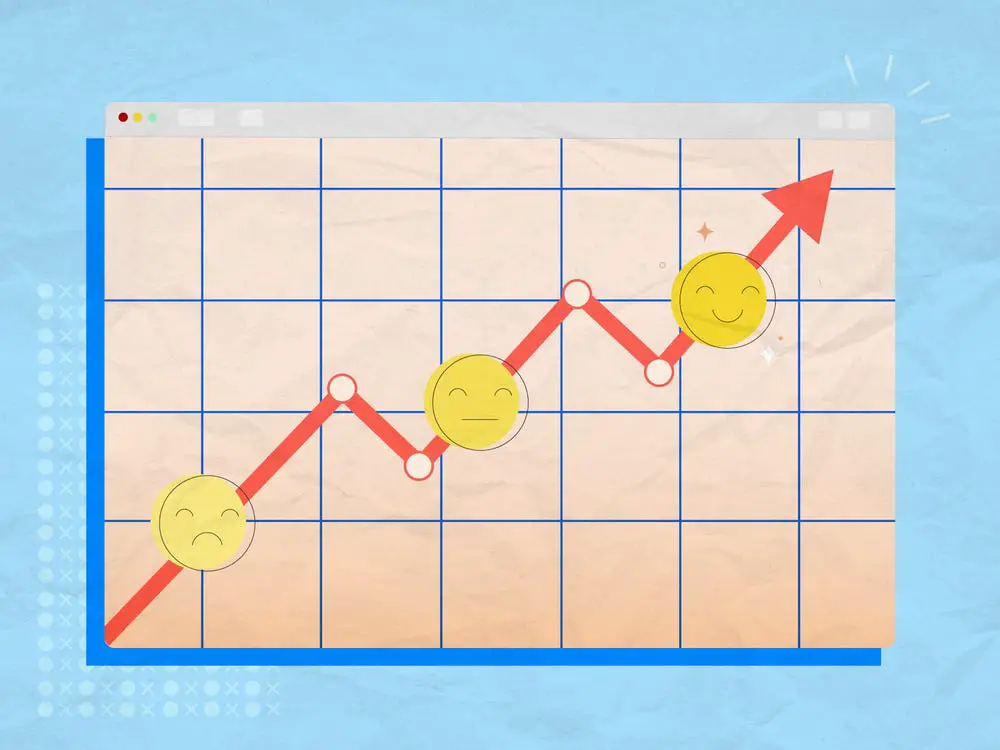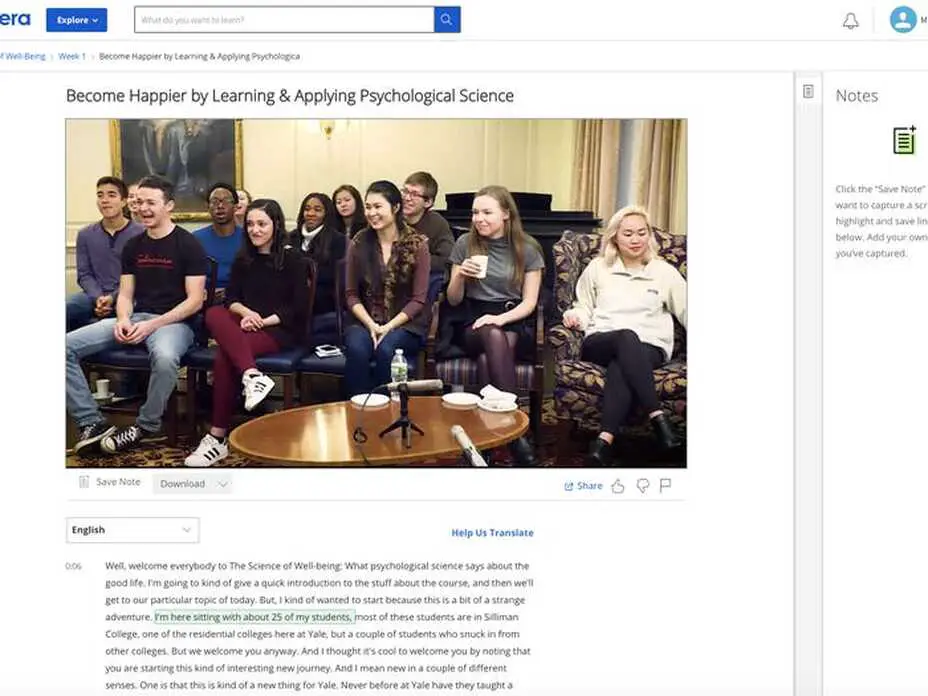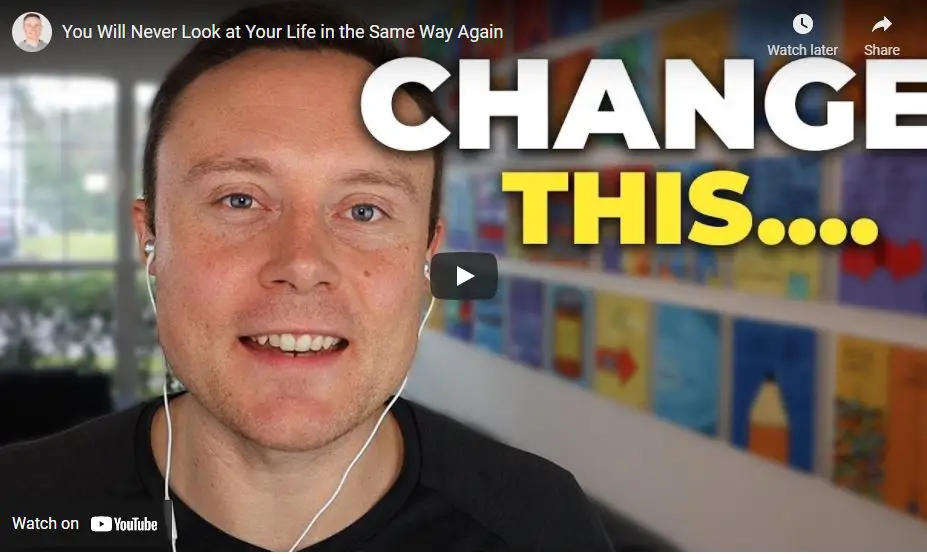|
To earn a Masters degree in Business Administration, you have to take many classes with highly esteemed professors who lecture you on problem-solving, management skills, hard work, and more. But thanks to the internet, you can watch highly esteemed professionals lecturing you on those same topics for much, much less money. Sure, it’s not a real MBA, but it’s a good place to start.
Lean back, open up your laptop, and put on your listening ears: we’ve outlined the eight best TED Talks to improve your business skills. But if you’re seriously considering getting your MBA, you should probably also do that, too.
1. Grit: Power of Passion and Perseverance by Angela Lee Duckworth
Duckworth coined the term “grit,” which constitutes a dedication to hard work and a commitment to achieving success with passion and perseverance — a quality she believes to be more important than IQ when determining one’s future success.
2. How Great Leaders Inspire Action by Simon Sinek
An expert on leadership, Sinek discusses the “Golden Circle” and its importance in the approach of great leaders of the past. Sinek discusses Martin Luther King, Jr. (as well as others) and describes what makes one a good leader: it’s not how you do what you do, but why you choose to do it.
3. Your Body Language May Shape Who You Are by Amy Cuddy
Social psychologist Amy Cuddy discusses “power posing,” or standing in a way that exudes confidence through one’s body language. She describes how power posing can make you feel confident even when you were not feeling confident to begin with — and how it can increase your chances of professional success
4. Why We Have Too Few Women Leaders by Sheryl Sandberg
Sandberg, the COO of Facebook, discusses gender inequality at the executive level and offers advice on how women can achieve equality in the workplace. Sandberg tells women to treat themselves fairly, to be real partners to their husbands or wives, and to continue to persevere rather than quit.
5. The Puzzle of Motivation by Dan Pink
Pink is a career analyst who will change your way of thinking when it comes to motivation. Social scientists are telling us that traditional rewards systems in companies are not effective, but managers are not listening. Listen as Pink attempts to end things-based motivation.
6. The Happy Secret to Better Work by Shawn Anchor
Psychologist Shawn Anchor argues against the belief that we need to work hard in order to be happy. Instead, he suggests we need to first be happy in order to work hard. He argues that happiness allows us to be more productive, and in turn, more successful.
7. The Power of Believing that You Can Improve by Carol Dweck
Dweck, an author and professor of psychology, discusses “growth mindset” — the idea that our brains can grow and learn to solve problems. Dweck wants others to focus not on the belief that they may not be smart enough to solve a problem. Instead, they should consider that they just haven’t found a way to solve it… yet.
8. 8 Secrets of Success by Richard St. John
This short-but-sweet TED Talk by St. John details his research on successful people like Bill Gates and Goldie Hawn. Were they simply smart? Did they just get lucky? St. John says neither. His eight secrets include passion, focus, persistence and more.
A version of this post previously appeared on Fairygodboss, the largest career community that helps women get the inside scoop on pay, corporate culture, benefits, and work flexibility. Founded in 2015, Fairygodboss offers company ratings, job listings, discussion boards, and career advice.
0 Comments
By Benjamin Hardy, PhD -- Real leadership is rare. It takes courage and trust. It means you don't try to control everything. Learn this and you'll have INSANE freedom and success. How do we live a more meaningful life? Answering this abstract life question in a tangible, actionable way can be tough. But Yale professor Laurie Santos aimed to do just that, and in the spring of 2018, she unwittingly launched "Psychology and the Good Life," the most popular class in Yale's 319-year history. Eventually, one in four Yale students were reportedly enrolled, with the university even pulling fellows from the School of Public Health and its Law School to help staff it. Santos designed the course to bust myths about what makes us happy (like the luxury Mercedes-Benz status symbol) and replace them with research-backed habits for building a happy life. In doing this, Santos gave students what many of us never stop craving: direction towards a more fulfilled life, and the reassurance that our path towards happiness won't lead us astray. Yale's campus was primed for Santos' course. "Psychology and the Good Life" debuted in the US — home to supposedly only the 18th-happiest population in the world, according to the 2020 World Happiness Report — and at one of the nation's most high-pressure colleges. Given its popularity, it was soon clear that this course could be relevant to those outside an Ivy League campus. To increase accessibility to the materials, Santos created a free online version of the same principles: "The Science of Well-Being." And in 2020, the world was primed for it. During the isolation brought on by the COVID-19 pandemic, a whopping 2.2 million people enrolled in the course online. You can take the course for $0 here, which takes an estimated 10 weeks (19 hours total) to complete. Or, keep reading for an overview of what to expect and a firsthand review of the online course. What to expect from the class: The course intentionally feels warm, casual, and inviting. It was shot in Santos' home with a handful of students. Mara Leighton/Business Insider The format:
Each section includes video lectures, optional readings, and "rewirement" activities to do each day to build happier habits. Research suggests that if you do these rewirements as prescribed, you should get a boost in your mood and overall well-being. After completing the five weeks above, students should commit to practicing one rewirement exercise for at least a month. What the course is like:To make the class warm and inviting, the lectures are shot in Santos' own home, with a handful of Yale students in the audience. It feels intimate, and Santos's tone is friendly and conversational. And, because some of the most contemporary research was conceptualized and coined by Santos herself, it feels like what it is: a great, in-depth exploration of the topic with an expert. Thankfully, for the busiest among us (who ironically may benefit the most from this course), there's absolutely no required reading or grade penalty for a missed assignment deadline — so you don't need to stress about suggested deadlines if you can't meet them. All the information you need to know is summarized within the lecture. If you want to dive deeper, Santos provides links to complementary readings. In other words, this class is about well-being — and it aims to practice what it preaches. You can sign up here for free, or keep reading to learn about my experience. Weekly "rewirement" activities help build habits that make us scientifically happier: savoring, practicing gratitude, meditating, and acts of kindness among them. Mara Leighton/Business Insider
I should disclose that I enjoy online classes. In the character-strengths test that you're invited to take at the course's outset, "curiosity" was my most dominant trait out of the 20 possibilities. But despite being a candidate of least resistance, I was surprised by how much I enjoyed a few weeks in the course. It felt immediately and concretely useful — most of the class legwork is completing daily "rewiring" tasks designed to build those research-backed happiness habits into your life even after the course ends. Here's what I liked:
The only thing to note is that, while you can take the class at your own pace, you're encouraged to implement the rewiring techniques on a weekly schedule. Research finds that improving your well-being takes daily, intentional effort over long periods — meaning this 10-week class is a great opportunity. In a follow-up interview that I conducted with Professor Santos to discuss happiness in quarantine, this point — the importance of building these habits every day — remained paramount. Should you get a certificate? What does it include? Maybe, but most likely not. You'll have access to all the course materials and forums for this class without paying. But, if you want a certificate of completion or graded homework assignments, you can pay $49. You can also always upgrade any time during the course or afterward, so it's probably worth it to test it out for free before committing to payment. If you can't afford the $49, apply for the course's financial aid. Click on the "financial aid" link beneath the "enroll" button on the left. You'll be prompted to complete an application and will be notified if you're approved; applications take at least 15 days to be reviewed. Coursera The Science of Well-Being One of Yale's most popular classes ever (and a Business Insider favorite), this class debunks some of the most common myths about happiness and teaches you how to authentically improve your well-being. By Benjamin Hardy PhD - Life is harder now because our world is designed to distract us. Our world is more confusing than ever. This is no secret. Depression and anxiety rates are skyrocketing. Addiction is an epidemic. Obesity continues to rise in America. General unhappiness, numbness, and dissatisfaction are basically the expected norm. If your life isn’t moving in the direction you want it to go, or if you feel overwhelmed by everything on your plate, then this article is for you. You can apply the methods in this article and see immediate results. If you begin to develop a practice to apply the methods in this article, then you will learn how to achieve any goal you set. Gratitude is the mother of virtues. You’ve heard that a thousand times. But what does it actually mean to be grateful? Clearly, it isn’t writing down a list of what you’re grateful for once per year on Thanksgiving. And even though that is a helpful exercise, there’s a lot more to it, although it isn’t complicated. Gratitude Transforms 3 Things Fundamentally, gratitude is intended to change three things:
Every morning, you have the opportunity to trigger a mental and emotional state that sustains throughout the whole day. If you start your day right, you’ll be shocked at the momentum you can create. Even more though, if you give yourself some space — I’m talking 5–30 minutes — of strategic gratitude and visualization, then you literally prime your brain to operate at a higher level throughout the day. So here’s how to apply the three methods of gratitude: Transform Your Past Dan Sullivan, the founder of Strategic Coach, has a very important concept he teaches entrepreneurs: he calls it “The Gap and the Gain.” Most people are living in “The Gap.” They always see what’s missing. For example, I could get my son a candy bar on my way home from work and when I give it to him, he might say, “You didn’t get the one I like.” That’s the gap. My son didn’t notice or appreciate the fact that I went out of my way to get him a gift. He only noticed that the thing wasn’t what it could have been. He didn’t realize that he just gained something. He only saw the gap. Most people live their entire lives in the gap. Dan teaches his entrepreneurs instead to live in the gain. This is actually quite simple: rather than measuring yourself against your ideals, you measure yourself against where you were before. This is very effective for goal setting. Most people don’t like goals because being ambitious is emotionally taxing. It hurts to fail and it’s a let down to succeed. But these emotional problems come from focusing on the wrong thing. People get emotionally attached to outcomes when they’re living in the gap. When you live in the gain, all you see is progress. What you focus on expands. When all you see is progress, your brain comes to expect it more and more. You get progress without being attached to specific outcomes, even though those outcomes come with increased velocity. Every day, you could measure the gain. You could look back at the end of your day and think to yourself: What were my three greatest wins for the day? Former Stanford business professor and university president, Henry Eyring, had a practice of asking himself every night: “How did I see God’s hand in my life today?” Eyring would then spend a few minutes meditating on his day, and he would realize the several instances he experienced miracles or blessings — big or small. He would then record those in his journal. Now, as much as “measuring” the gain is key, you also want to remember the gain. Most people, when they look back on their past, often remember the gaps. They remember where things didn’t go as well as they could have. They think about how their parents didn’t show up as much as they could. It’s very easy in relationships to be in the gap — where all you see is where the other person isn’t up to par. That’s a horrible way to be in a relationship. It’s also not fair to the other person. Being in the gap forces your brain to think that things cannot change. It’s is how you develop a negatively fixed mindset. So one of the key strategies of gratitude to apply is reshaping your memory of the past. Yes, you heard that correctly. Your past is not objective. Rather, your past is entirely subjective. It’s a meaning. Good or bad. Happy or sad. You are the person who ascribes meaning to your experiences. You are the one ascribing meaning and context to your past experiences. It’s highly likely that a great deal of your “past” is in the gap. Gratitude allows you to re-remember your past while being entirely focused on the gain. When you re-contextualize your past, you’ll never be the victim to your past again. Most people, when they describe their current circumstances, point to their past. “I’m the way I am because of [name the experience].” Your past does not need to be something you are the victim to. Instead, your past can be something continually inspiring you and propelling you forward. If you truly want to embody and experience the benefits of gratitude, then you must stop trying to be “objective” about this. You cannot say, “But you don’t understand, my past really is unique and it was horrible.” I’m not trying to downplay what happened to you. Nor am I trying to ignore the emotional impact of your previous experiences. What I’m showing you is that, quite literally, you are the designer of your past. You get to decide the narrative and perspective and context. For example, last year, I launched my first major book, Willpower Doesn’t Work. From outside perspectives, the book was likely a huge success. But for me, it was a huge failure! I had specific goals and expectations that weren’t met. I had invested huge amounts of time and money and didn’t succeed at the level I wanted. For a long time, my story around that book launch was that it was a failure. Because of that story in my head, my memory of that experience was in the gap. I wasn’t seeing all the brilliant things that came out of that experience. And the truth is, insane amounts of opportunity, learning, and growth came out of that experience. So, I’m choosing to remember the gain, not the gap. I’m choosing how I remember that experience. And as a result, I’m choosing my narrative and my past. Your past is whatever you ascribe meaning to. You can remember the gains, or you can remember the pain. Post-traumatic growth is the opposite of PTSD. You could have any negative experience imaginable and become better from it. This may take time, but if you are conscious about your emotions and conscious about your future, then you can turn anynegative experience into a lot of gain. Your painful experiences become the doorway to growth and experience, as well as service to others dealing with similar problems. Your biggest failures and problems can be — if you let them — your greatest drivers of success, learning, and joy. But you need to choose how you see and how you remember them. It’s entirely up to you. You can remember the gain or the gap. How you choose to remember determines your past. Transform Your Present Circumstances “Focus on circumstances and you’ll be a consumer. Focus on capacity and you’ll be a creator.” — Kade Janes Very rarely are you going to be in ideal circumstances. There will always be friction and challenges to living your dreams. There will always be inconveniences. The problem isn’t actually your circumstances, but how you’re looking at them. Perfect circumstances are not actually ideal. If you look at nature — plants and animals that thrive do so because of difficult circumstances. As the poem by Douglas Mallach states: “Good timber does not grow with ease: The stronger wind, the stronger trees; The further sky, the greater length; The more the storm, the more the strength. By sun and cold, by rain and snow, In trees and men good timbers grow.” You don’t want perfect circumstances. You want and need a challenge to grow. But circumstances in general, particularly your current circumstances, need to be reframed. If you’re going to pay any attention to your circumstances, you should consciously focus on the good in them. Have gratitude for the amazing people in your life, for the opportunities you currently have, and for the chance to live on this beautiful planet. If you’re reading this article, then you have access to resources that would blow the minds of most of human history. So, as challenging and limiting as your current circumstances are — you’re probably living in the gap. And when you live in the gap, it really doesn’t matter what you have, you won’t see it that way. You could be a billionaire, and if you’re in the gap, it will never be enough. So, part one of transforming the present is appreciating it. It’s not about your resources, but how resourceful you are. There are people with far less doing far more with what they have than you are. It’s not your circumstances, it’s you. But there’s actually a problem with focusing on circumstances at all — you’re actually far better off focusing on your capability. This is a powerful shift. If you focus on your circumstances, you’ll find plenty to complain about. But if you focus on your capability, then your only option is to get moving. Your capability is always above your circumstances. There is always something you can do to impact and change your life and move in the direction you want to go. Having gratitude for the opportunity to grow and move forward is how you change your present. You see all the beauty in what you currently have, and you recognize the amazing power you have to improve upon what you have. If you’re focused on your capability, then you’re more likely to put your energy into creating and moving forward. If you’re more focused on your circumstances, then you’re more likely to put your energy into consumption and avoidance. How much time are you spending consuming? How much time are you spending creating? If you’re consuming, then you’re likely living in the gap. You’re likely focused on your circumstances and what’s wrong or difficult about them. If you’re creating, then your focus isn’t on your present circumstances, but your future ones. You’re telling a story about your life and you’re the one creating it. This is a powerful way to live. Have gratitude for the present and gratitude for what you can do. This allows you to create powerfully. Transform Your Future, Right Here-And-Now You are the designer of your past memories, your present experience, and your future as well. Every morning, during your morning meditation and visualization session, you want to experience and fully embody gratitude for your future. Visualization is far more powerful when it is mental and emotional. The more emotional and embodied the visualization, the more you will believe and know that it is true. American novelist, Florence Shinn, has said, “Faith knows it has already received and acts accordingly.” Gratitude for your future bolsters your faith.
It allows you to know that you’ll succeed, long before you do. While most people are defined by experiences from their past, successful people are defined by experiences in their future. What experiences do you want to have? What events in your future do you want to see occur? Are you living your life, right now, as though those experiences were for sure going to happen? Are you living your life, right now, to consciously create those experiences? Do you have complete peace that your dreams will come true? If not, then you likely won’t succeed. Your negative emotional state will stop you from the very things you want. Your emotional state is fundamental to what you create in your life and future. If you’re at a place of acceptance, peace, and trust, then you’ll be able to navigate the challenges you’ll face toward your dreams. Every day, experience complete gratitude for the inevitable success of your future. Then, act the part, here and now. Conclusion You are the one creating your experience in life. You are the one who shapes the meaning of your past. You are the one who determines how well you’ll do, regardless of the circumstances you are in. As your past, your circumstances are subjective, not objective. Your circumstances are a “meaning” with which you decide what to do. Focus on your capacity, not your circumstances. When you focus on your capacity, you realize that you have the power to create your desired future, regardless of what you see in front of you. When you focus on capacity, you stop being bogged down by all of the friction and challenge in your current circumstances. Undoubtedly, your life is hard. It’s far from perfect. There are constraints stopping you from actively moving forward. But in large respect, those constraints are in your head. Focusing on the constraints only makes them larger in your mind. Focusing on what you can do about it, right now, is how you change those constraints. You can change your life, one day at a time. Every morning, you can experience huge amounts of gratitude for your past, your present, and your future. If you take a few minutes to really do this, then you’ll be shocked at how good you feel. You’ll be shocked at the hope and optimism you feel for your future. You’ll have a desire to reach out and connect with your loved ones, and tell them how grateful you are for them. When you begin operating from a place of true gratitude, you’ll immediately begin transforming your life and relationships. What are you waiting for? No more consuming. No more focusing on the problems in your life or your past. Instead, take ownership of your experience. Take ownership for your past and your narrative of that past. Take ownership of your current capacity. You have divine potential and unlimited capacity — but only if you focus your attention on what you can do, rather than what’s wrong. Have a beautiful day. Are you looking for something fun and new to do in New Jersey? Give rail biking a try! What exactly is rail biking? An exciting activity that involves riding pedal-powered machines along inactive railroad tracks You can find more information and book your rail bike adventure here. Reservations are recommended. During peak season, rides are available between 8 a.m. and 6 p.m., so this journey will work well with whatever vacation schedule you’re planning. They also offer rides on a reduced schedule in the spring and fall. You may even come across wintertime slots! Don’t miss out on the best new nature attraction in Cape May, New Jersey.
Address: 609 Lafayette St, Cape May, NJ 08204, USA This article originally appeared in "Only in your state" Most people are WAY more distracted than they think. Losing hours and hours every day. You can't beat a bad environment. You've got to change it.
You Will Never Look at Your Life in the Same Way Again BY Benjamin Hardy, PhD |
Written, Compiled & Edited byThe Bergen Review Media Team
�
Archives
April 2024
Categories
All
|
|
Bergen Review Media is a
WebClientReach, llc Company |
50 East Ridgewood Ave. #215
Ridgewood, NJ 07050 Phone: (201) 948-5500 |
The Bergen Review is Bergen county's concierge for the best businesses, restaurants & venues in New Jersey. Our agency has a combined total of over 15 years experience in online media and marketing. Our team of experts scour every nook and cranny of New Jerseys best businesses, restaurants & venues to present to our clients the full scoop of where best deals & experiences are. Even after researching & looking at reviews, finding the REAL scoop on what Businesses, restaurants or venues best fit your interest can be a challenge. Bergen Review Media has a team that researches & visits various establishments. Making sure the consumer gets the best experience.
|
Website by Bergen Review Media















 RSS Feed
RSS Feed






